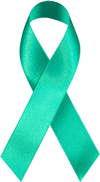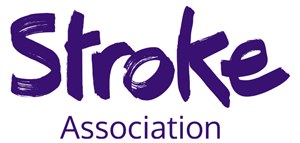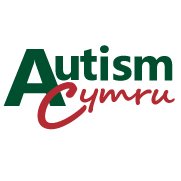Stuttering, also known as stammering, is a speech disorder in which the flow of speech is disrupted by involuntary repetitions and prolongations of sounds, syllables, words, or phrases as well as involuntary silent pauses or blocks in which the person who stutters is unable to produce sounds. The term stuttering is most commonly associated with involuntary sound repetition, but it also encompasses the abnormal hesitation or pausing before speech, referred to by people who stutter as blocks, and the prolongation of certain sounds, usually vowels or semivowels. According to Watkins et al., stuttering is a disorder of "selection, initiation, and execution of motor sequences necessary for fluent speech production". For many people who stutter, repetition is the main concern. The term "stuttering" covers a wide range of severity, from barely perceptible impediments that are largely cosmetic to severe symptoms that effectively prevent oral communication. Almost 70 million people worldwide stutter, about 1% of the world's population.

International Stuttering Awareness Day (ISAD), or International Stammering Awareness Day, is an annual celebration held on October 22. It was first held in the UK and Ireland, in 1998. The day is intended to raise public awareness of the issues faced by millions of people – one percent of the world's population – who stutter, or stammer.
Cluttering is a speech and communication disorder characterized by a rapid rate of speech, erratic rhythm, and poor syntax or grammar, making speech difficult to understand.
The World Network of Users and Survivors of Psychiatry (WNUSP) is an international organisation representing, and led by what it terms "survivors of psychiatry". As of 2003, over 70 national organizations were members of WNUSP, based in 30 countries. The network seeks to protect and develop the human rights, disability rights, dignity and self-determination of those labeled 'mentally ill'.
Judith Maginnis Kuster, aka Judith A. Kuster, is a certified speech-language pathologist and Professor Emerita from Minnesota State University, Mankato where she taught in the Department of Speech, Hearing and Rehabilitation Services for 25 years. She holds an MS in speech-language pathology from the University of Wisconsin, Madison and an MS in counseling from Minnesota State University, Mankato. She is an ASHA FELLOW and a Board Recognized Specialist in Fluency BRSF-R.

The Stroke Association is a charity in the United Kingdom. It works to prevent stroke, and to support everyone touched by stroke, fund research, and campaign for the rights of stroke survivors of all ages.
The McGuire Programme is a stammering or stuttering programme/course run for people who stammer or stutter by people who stammer. It was founded in 1994 by American Dave McGuire.
There are many references to stuttering in popular culture. Because of the unusual-sounding speech that is produced, as well as the behaviors and attitudes that accompany a stutter, stuttering has been a subject of scientific interest, curiosity, discrimination, and ridicule.

The National Stuttering Association (NSA) is a United States support group organization for people who stutter. Its headquarters are in New York City.

The International Stuttering Association (ISA), founded in Linköping, Sweden, in July 1995, is a nonprofit international support group organization for people who stutter. The current chair is Anja Herde.

The Indian Stammering Association (TISA) is a public charitable trust and self-help movement for people in India who stammer. In India a person who stammers (PWS) faces stigma at home and in public, as often parents chide their children publicly, and social acceptance is not high.
The British Stammering Association (BSA), trading as Stamma since 2019, is a national membership organisation in the United Kingdom for adults and children who stammer, their friends and families, speech and language therapists and other professionals. It became a charity in 1978 and is based in London. The mission of the charity is to support anyone who stammers in the UK and tackle the stigma, ignorance and discrimination that people who stammer face so that they can live their lives in full and with dignity. It describes stammering as a neurological condition and estimates that up to 3% of adults in the UK have a stammer.
The Israel Stuttering Association is a public non-profit charitable organization that supports people who stutter and their families in Israel.
The FIMCAP, which is short for Fédération Internationale des Mouvements Catholiques d'Action Paroissiale, is an umbrella organization for Catholic youth organizations. Its 31 member organizations are based in 28 countries. The FIMCAP was founded in 1962 and is recognised as an official Catholic organization by the Dicastery for Laity, Family and Life. FIMCAP is also a full member of the European Youth Forum.

Autism Cymru was Wales' national charity for autism with offices in Cardiff, Wrexham, and Aberystwyth. The charity was established in May 2001 through an initial 3-year grant provided by The Shirley Foundation. The founder chair of the Trustees was Dame Stephanie Shirley of the Shirley Foundation.
Disability in the United Kingdom covers a wide range of conditions and experiences, deeply impacting the lives of millions of people. Defined by the Equality Act 2010 as a physical or mental impairment with a substantial and long-term adverse effect on a person's ability to carry out normal day-to-day activities, it encompasses various aspects of life, including demographics, legislation, healthcare, employment, and culture. Despite numerous advancements in policy and social attitudes, individuals with disabilities often encounter unique challenges and disparities.

Intersex people are born with sex characteristics that "do not fit the typical definitions for male or female bodies". They are substantially more likely to identify as lesbian, gay, bisexual, or transgender (LGBT) than the non-intersex population, with an estimated 52% identifying as non-heterosexual and 8.5% to 20% experiencing gender dysphoria. Although many intersex people are heterosexual and cisgender, this overlap and "shared experiences of harm arising from dominant societal sex and gender norms" has led to intersex people often being included under the LGBT umbrella, with the acronym sometimes expanded to LGBTI. Some intersex activists and organisations have criticised this inclusion as distracting from intersex-specific issues such as involuntary medical interventions.
Rachel Mary Rosalind Hurst CBE is a British activist and former director of Disability Awareness in Action (DAA), an international network working on disability and human rights.

Stuttering pride is a social movement that repositions stuttering as a valuable and respectable way of speaking. The stuttering pride movement challenges the pervasive societal narrative of stuttering as a defect, repositioning stuttering as a form of vocal and linguistic diversity that enriches our language, ideas, and art forms.







